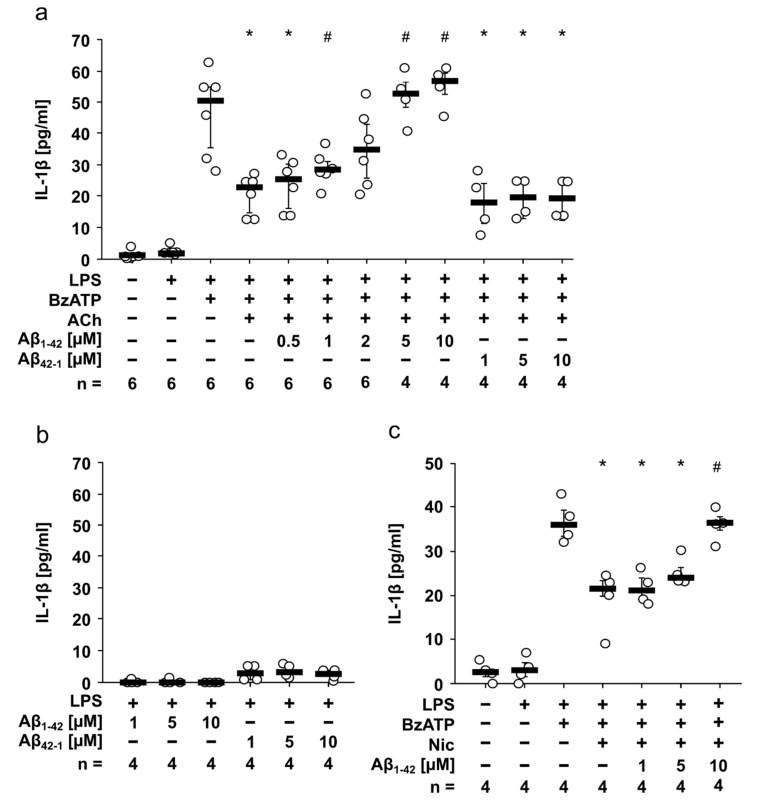Figure 1.
Amyloid beta peptide (Aβ1-42) reverses the inhibitory effect of acetylcholine (ACh) and nicotine (Nic) on BzATP-induced interleukin-1β (IL-1β) release by human monocytic U937 cells. U937 cells were primed with lipopolysaccharide (LPS) from Escherichia coli for 5 h. Thereafter, the P2X7 receptor agonist 2(3)-O-(4-benzoylbenzoyl)adenosine-5-triphosphate (BzATP; 100 µM) was added for another 30 min and IL-1β was measured by ELISA in cell culture supernatants. (a) The nicotinic agonist ACh (7.5 µM) inhibited the BzATP-induced release of IL-1β. This inhibitory effect was dose dependently blunted by Aβ1-42 with an IC50 = 2.54 µM. Reverse Aβ42-1 (1–10 µM) had no impact. (b) In control experiments, neither Aβ1-42 nor Aβ42-1 induced changes in IL-1β release by LPS-primed U937 cells. (c) The inhibitory effect of Nic (10 µM) was blunted in presence of 10 µM Aβ1-42. All data are shown as individual data points, bar represents median, whiskers encompass the 25th to 75th percentile. Statistical analyses were performed using the Kruskal–Wallis followed by Mann–Whitney U test. * p ≤ 0.05, different from LPS-primed cells stimulated with BzATP alone. # p ≤ 0.05, different from LPS-primed cells stimulated with BzATP and the corresponding nicotinic agonist without Aβ1-42.

